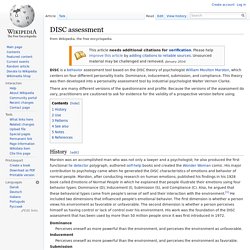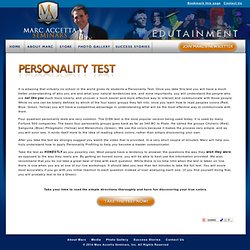

Projection Point. Test your risk quotient. We all want leaders to make smart decisions.

Maybe you fancy yourself as one of those leaders; someone who can make smart calls even when the evidence is inconclusive, as it usually is. Well, here's an interesting little online test to see how good you are at estimating probabilities. It asks a series of general knowledge questions designed not to see how much you know, but how certain you are about what you know. If you're too confident about your knowledge or not confident enough, your RQ will suffer. Give it a try.
The test was created by Dylan Evans, author of a new book about 'risk intelligence', a concept the author defines in this interview as 'the ability to estimate probabilities accurately, it's about having the right amount of certainty to make educated guesses.' Another explanation is that doctors, political leaders, CEOs and in fact human beings generally suffer from decision fatigue. Photo by Flickr user Tiago Daniel. Cognitive bias in risk taking.
Financial regulators still aren't paying nearly enough attention to the cognitive biases that lead people to take excessive risks, according to a research paper by attorney Nizan Geslevich Packin.

Some of her insights: 1) A more diverse group can lead to better decisions Research has shown that even when they have similar training, experience, and information, people with different cultural backgrounds make different decisions. Gender plays a role too. Women have been to emphasize risk factors more than male colleagues, be less risk seeking, and less 'ruthless.' 2) People are more honest when they're reminded of their own standards No matter what they're doing, people try to maintain a positive self-image, they like to think of themselves as having integrity.
Impact of mental practice in crisis. Personality-and-offshore-drilling1. DISC assessment. DiSC is a behavior assessment tool based on the DISC theory of psychologist William Moulton Marston, which centers on four different personality traits: Dominance, inducement, submission, and compliance.

This theory was then developed into a personality assessment tool by industrial psychologist Walter Vernon Clarke. There are many different versions of the questionnaire and profile. Because the versions of the assessment do vary, practitioners are cautioned to ask for evidence for the validity of a prospective version before using. History[edit] Marston was an accomplished man who was not only a lawyer and a psychologist; he also produced the first functional lie detector polygraph, authored self-help books and created the Wonder Woman comic. Dominance Perceives oneself as more powerful than the environment, and perceives the environment as unfavorable.
Inducement Perceives oneself as more powerful than the environment, and perceives the environment as favorable. Submission. Marc Accetta -Personality Test. It is amazing that virtually no school in the world gives its students a Personality Test.

Once you take this test you will have a much better understanding of who you are and what your natural tendencies are, and more importantly, you will understand the people who are not like you much more clearly, and uncover a much easier and more effective way to interact and communicate with those people. While no one can be totally defined by which of the four basic groups they fall into, once you learn how to read peoples colors (Red, Blue, Green, Yellow) you will have a competitive advantage in understanding what will be the most effective way to communicate with them. Four quadrant personality tests are very common. The DISK test is the most popular version being used today. It is used by many Fortune 500 companies. After you take the test we strongly suggest you watch the video that is provided. Take the test as HONESTLY as you possibly can. Moving forward from a "Lessons Learned" framework - mindset.
The Emperor's New Clothes - The Fallacy of Traditional Preparedness Programs Exposed at Y-12. Personality test based on Jung and Briggs Myers typology. The roots of the new bipolarity. Ten years ago, Robert Kagan grabbed everyone's attention by declaring 'Americans are from Mars, Europeans are from Venus'. It was, he told us at the outset of his article-turned-bestseller, 'time to stop pretending that Europeans and Americans share a common view of the world, or even that they occupy the same world.' As war clouds gathered over Iraq, Kagan argued that Americans were prepared to use force to uphold international order, while Europeans placed their hopes in institutions that would build a post-modern world where force was rare.
At the base of Kagan's analysis is an argument about power and psychology that has long intrigued me. He tells a parable about a man in a forest inhabited by a prowling bear: if the man is only armed with a knife he will probably lie low and hope to avoid the bear; but if the man is armed with a gun, he is more likely to go looking for the bear to eliminate the threat to his safety. To Asian states, modern history reads very differently. The Monkey Business Illusion.